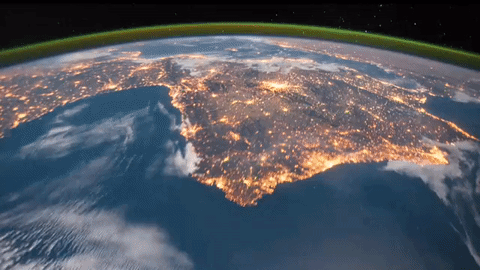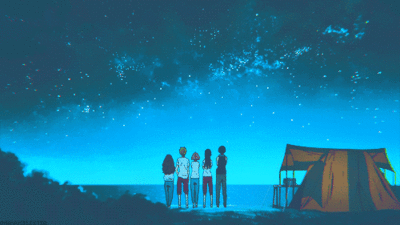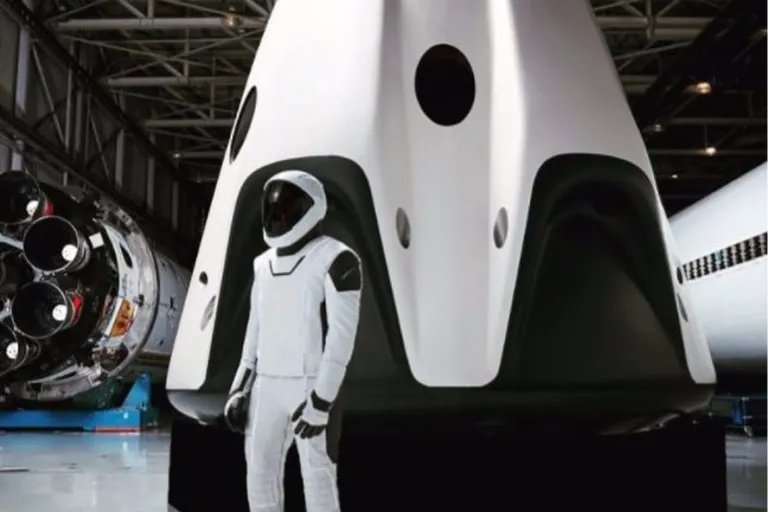Have we been too dogmatic about keeping astronauts alive?
How much of the entire industry is devoted to getting them safely back down to earth, and how much simpler and cheaper could space access be if surviving wasn't a priority?
There are no preventable deaths, only postponable ones.
We're living longer, and at the pointy end we get better information on exactly how long we have.
7am: Tearful goodbyes, as we help grandpa into his suit and chair, and strap him in for launch; as 19 other families do the same for their loved ones.
8am: The rocket lifts off, with grandpa and his fellow passengers on pure oxygen.
8:15am: The rocket is in low earth orbit, pacing the International Space station. Belts are remotely unbuckled. Rocket's nose cone folds away, chairs eject passengers into orbit at 8km/s.
Nose cone retracts, rocket returns to earth.
For the next 12 hours; grandpa and friends enjoy 7 or 8 sunrises and sunsets; and spectacular views of the planet, each on slightly different trajectories.
They're weightless with full range of movement, in very thin, well insulated, single use suits; listening to custom playlists as they circumnavigate the globe 8 times.
As their orbit starts to decay; the oxygen is slowly supplemented with nitrox, or some other suitable gas and they lose consciousness and die.

That evening, each family gathers in their pre-determined location to watch as grandpa burns up on re-entry; a brightly coloured meteor streaking across the night sky. (Suit insulation can double as colouring agent)

The children who watched the moon landing and long ago resigned themselves to never going to space, are going to be leaving us in the next few decades.
Are they going to die in a small hospital room and go into a hole; or can we do better?


Wow! What a great idea.
You are so right that we have become so risk averse as a society and in the space industry especially.
If the early explorers had been so risk averse humanity would never have left the African savannah.
COVID hysteria and self destructive policies are a direct result of this crazy risk aversion.
Thanks. This one's been rattling around for a year or so.
I can imagine beloved celebrities going out this way; with co-ordinated vigils on the ground.
As they fly over at night, their home town could turn off all their lights for 30 seconds.
As I mentioned on this response post;
I'm not suggesting it become the 'new normal', but for those who can afford the price; it could finance a lot of further growth in the industry.
Eventually space elevators will do the same job; but then, we'll get them sooner if we can point to a lot of lucrative use cases.
That would be a pretty cool way to go. Wouldn't be cheap though. Or probably legal in many countries as it'd surely count as "assisted suicide"?
Falcon 9 can lift 63,800 kilograms, equivalent to more than 27 Asian elephants, to low Earth orbit for $90 million. Five floors (of 20 people a floor) for 100 people total comes out at $900K each. Not cheap, but mobile phones weren't cheap at first, either.
I imagine countries would be falling over themselves to allow it; particularly considering how many family members may include a holiday in the trip.
Medically, it might be an issue, with G forces on launch.
If the rocket's custom built for purpose, it could be made lighter, reducing launch velocity.
You have clearly put a lot of thought into it :)
I would not be at all surprised if some of the boomers decided to spend $900K on this instead of helping their kids and grandkids buy a house but I'd be disappointed if my own parents did it. Seems kind of indulgent and selfish at that price point.
I think a more realistic price would be around 100-200K, but yeah, not for the commoners; at least not at first.
!ENGAGE 20
ENGAGEtokens.Buenos dias amigo deseo que se encuentre bien al igual que su familia . Que tenga un excelente día .
With a title like that I was expecting your usual satire.
I wonder if you'd get many takers, even assuming price wasn't an issue. It certainly wouldn't be for the agoraphobic. The issue with euthanasia from the perspective of someone healthy is the thought of choosing your time of death. Yet I'm guessing it would be different when you're facing the prospect of choosing a dignified death or a slow painful or undignified one.
I expect at least 50% of men would take this option, given the chance. (assuming price wasn't a limiting factor).
I can't think of a mate who'd turn it down, to be honest.
Capitalise it. Want a live stream of their trajectory through space, that'll be an extra $x - automatically upload it to some collection of streaming videos. Have online vigils in addition.
I've loved this idea since you first spoke to me about it at some point in the past.
Would be an incredible way to go. :)
Except that the cost of lifting a pound of weight into earth orbit is out of the reach of most people.
And you need at least 100x that for most elderly people.
All of those hip surgeries pale in comparison to the cost of this.
And we still do not know the environmental costs of sending up a rocket.
Of course, The US has flying saucer technology, so maybe we could use those.
Unfortunately, they are also hiding the true shape of the earth, so they may not be willing to lend us one.
Young people should avoid space due to the cancer risks.
Sending old people makes more sense, to me.
We wouldn't be putting them to work, we'd just be sending them off in style.
That said, I'm sure we'd learn a lot about space travel and the human body.
Yes, your proposal is sound, to me.
But the broader space policy should bias towards old people retiring into space, imo.
They have the money.
Nurses wouldn't have to lift them.
They couldn't fall and break a hip.
It just makes sense to send old folks into orbit, or the moon.
Lots of wisdom in that. Like the elderly gents at Fukushima, doing the radioactive stuff so younger people don't have to.
If I was terminal, I'd totally do it. But I would
suggest that a small amount of liquid courage
would be recommended prior to the launch.
And/or some THC vapour in the suit's ventilation system.
lol..... better to burn out then to fade away!
Tell grandpa millions of people will see him streaking.
